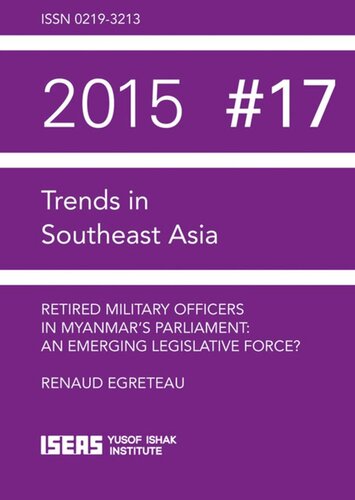

Most ebook files are in PDF format, so you can easily read them using various software such as Foxit Reader or directly on the Google Chrome browser.
Some ebook files are released by publishers in other formats such as .awz, .mobi, .epub, .fb2, etc. You may need to install specific software to read these formats on mobile/PC, such as Calibre.
Please read the tutorial at this link: https://ebookbell.com/faq
We offer FREE conversion to the popular formats you request; however, this may take some time. Therefore, right after payment, please email us, and we will try to provide the service as quickly as possible.
For some exceptional file formats or broken links (if any), please refrain from opening any disputes. Instead, email us first, and we will try to assist within a maximum of 6 hours.
EbookBell Team

4.0
66 reviewsRetired military officers continue to wield considerable influence in Myanmar's post-junta politics. As former soldiers, they have developed a particular mindset and a specific view of society as well as of the place and policy role of the armed forces (or Tatmadaw). The first post-SPDC legislature (2010-15) has, however, not been entirely dominated by Tatmadaw retirees, as often perceived. These form only a minority in the Union parliament (or Pyidaungsu Hluttaw). The lower house (or Pyithu Hluttaw) gathers more prominent retired officers than the upper house (or Amyotha Hluttaw). Retired Tatmadaw officers have however been able to capture disproportionate control over most positions of legislative authority in the house, such as the speakerships, as well as several chairmanships and secretariats of key parliamentary committees as well as ad hoc legislative commissions. This remains a key indication of where power lies in the upper levels of the current Union legislature.Drawing on a series of recent interviews, as well as an initial analysis of individual legislative activities performed by Union-level legislators, this paper identifies three types of Burmese parliamentarians with military background: reluctant members of parliament (MPs), dutiful MPs and high-flying MPs. The differences between these are broadly based on the level of their respective public engagement, the effort displayed in performing their legislative activities while in assembly and outside, their perceived political influence within the house, and their immediate and long-term political goals.